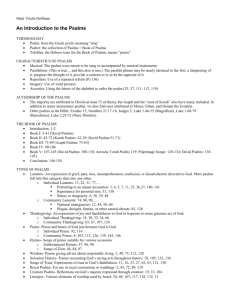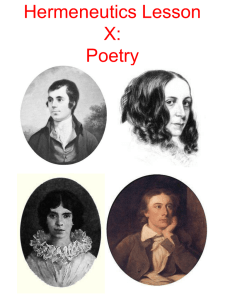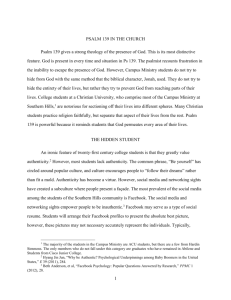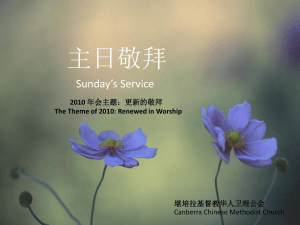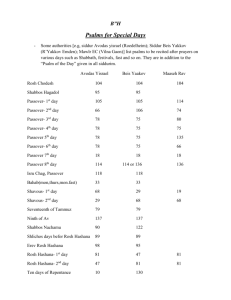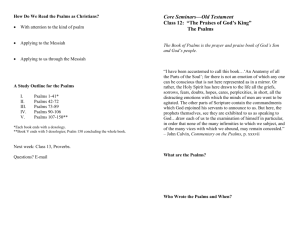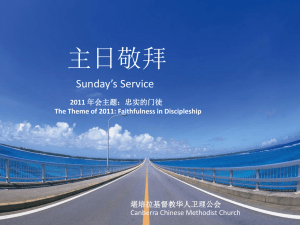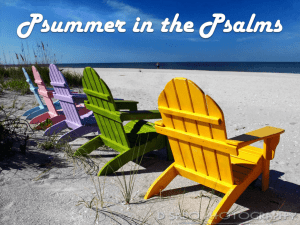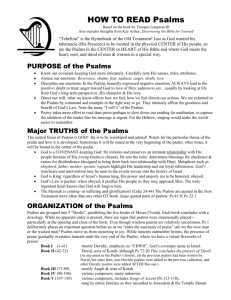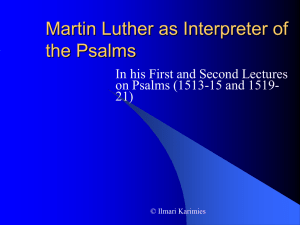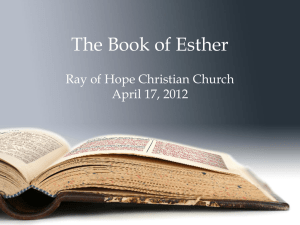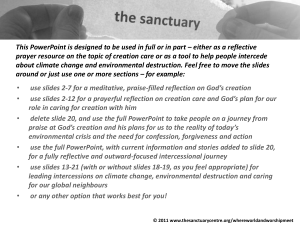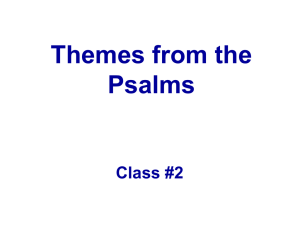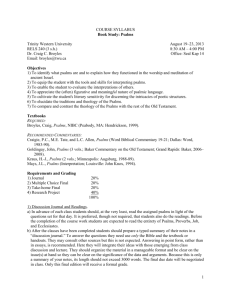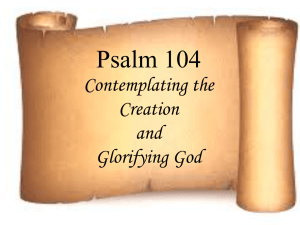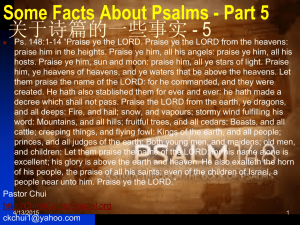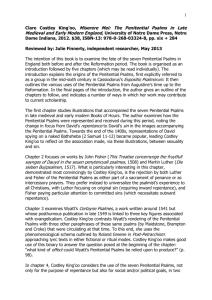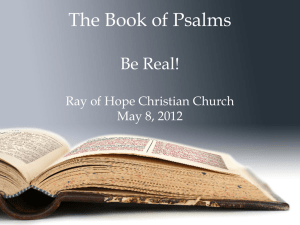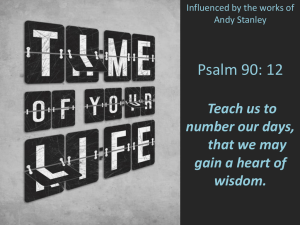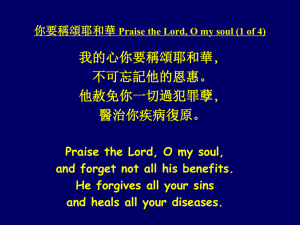Psalms: Introduction
advertisement
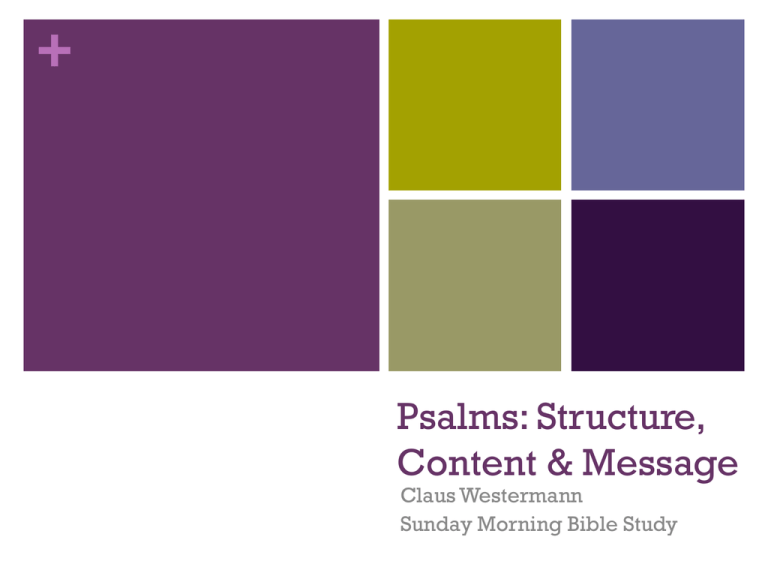
+ Psalms: Structure, Content & Message Claus Westermann Sunday Morning Bible Study + Introduction A Call to Praise The Significance of the Psalms in the Bible How The the Psalms Originated Collection of the Psalms Superscriptions The and Notations Poetic Form of the Psalms Types and Genres of Psalms + A Call to Praise Psalm 103:1-2—“Bless the LORD, O my soul, and all that is within me, bless his holy name! Bless the LORD, O my soul, and forget not all his benefits.” Who made this call? What world did he live in? “bless” and “forget not” Praise Him so you don’t forget what He’s done and tell others what He’s done so they won’t forget. + Psalm 103:11-14—” For as high as the heavens are above the earth, so great is his steadfast love toward those who fear him; as far as the east is from the west, so far does he remove our transgressions from us. As a father shows compassion to his children, so the LORD shows compassion to those who fear him. For he knows our frame; he remembers that we are dust.” The immenseness of God versus the smallness of humans + The Significance of the Psalms in the Bible Psalms: human responses to God’s word and actions Passing through the Red Sea (Exodus 15) Barren woman celebrates the birth of a son (1 Samuel 2) Entire book of Psalms Mary (Luke 1) The Christ-hymn (Colossians 1) The throne of heaven (Revelation 5) + The Significance of the Psalms in the Bible Praise and lament Sometimes we praise God for his actions Sometimes we lament God for his actions Connection between singing and praying Psalms are sung prayers or prayed singing Significance for people throughout the ages + How the Psalms Originated The Psalms arose out of the worship of Israel Essential component of worship in its variety of forms Psalms were first sung then written Worship was interconnected to all of life Events incorporated into psalms Events happened to one person or to the community The Psalms gave voice to everyone + The Collection of the Psalms Modern Book 1: Psalm 1-41 Book 2: Psalm 42-72 Book 3: Psalm 73-89 Book 4: Psalm 90-106 Book 5: Psalm 107-150 Larger collections collections Psalms 3-41 attributed to David Psalms 42-83 called Elohistic Psalter + The Collection of the Psalms Smaller collections Psalms 42-49 are songs of Korah Psalms 51-59 are psalms of David Psalms 51-59 are laments of the individual (IL) Enthronement psalms (93-99, excluding 94) Psalms of praise (103-107) + Superscriptions and Notations Superscriptions Musical are not original designations are unclear “to the choirmaster” “Selah” Though the notes are unclear, the Psalms can be understood + The Poetic Form of the Psalms Parallelism of members (common feature) “synonymous parallelism” Psalm 103:1—“Bless the LORD, O my soul, and all that is within me, bless his holy name!” “synthetic parallelism” Psalm 103:2—“Bless the LORD, O my soul, and forget not all his benefits.” “antithetic parallelism” Proverbs 21:26—“All day long [the sluggard] craves and craves, but the righteous gives and does not hold back.” + Types and Genres of Psalms Main types of psalms Community psalm of lament (CL) Individual psalm of lament (IL) Community psalm of narrative praise (CP) Individual psalm of narrative praise (IP) Psalm of descriptive praise (hymn) (H) Narrative Two praise versus descriptive praise other types Liturgies Wisdom psalms
